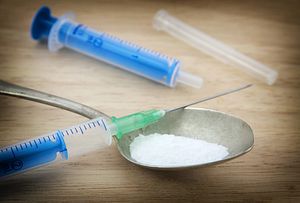More than 20 years after the UN’s calls for “a drug-free world,” the world is beginning to see that it is fighting the wrong enemy. Prohibitionist policies have left the market unregulated and user unprotected. Decades of drug “wars” have left the world no closer to eradicating the problem.
Endorsed by five Nobel Prize-winning economists, a report released by the London School of Economics (LSE) calls on the world to drastically redirect resources from “law enforcement and repressive policies towards proven public health policies of harm reduction and treatment.”
The 82-page report, titled “Ending the Drug Wars,” studies the economics of drug policies and shows that to achieve effective strategies, governments need to experiment with and monitor regulation.
In Asia, where the majority of the world’s heroin is produced and seized, many countries share a hard-on-drugs ideology.
A report by the United Nations Office on Drugs and Crime shows that, in 2013, Afghanistan accounted for 75 percent of the world’s heroin supply, followed by the Golden Triangle which produced 18 percent. Production in both areas has been on the rise for the past few years.
Meanwhile, the harshest sanctions for drug offences, including non-violent crimes, are handed down in Asia. Among the 33 states and territories that haven’t abolished capital punishment for drug offences, most are in Asia and the Middle East. While many countries keep their death row statistics under wraps, it is reported that 400 people were hanged in Singapore for drug trafficking between 1991 and 2004.
Some battles happen outside the court. In 2003, approximately 2500 people were killed during a three-month crackdown on drugs waged by Thailand’s then Prime Minister Thaksin Shinawatra.
Despite the iron-fisted policies, new trends are making prohibitionist policies only more impractical.
One problem is the prevalence of synthetic drugs. Meth labs are playing with chemistry to create new drugs more quickly than the officials can ban them – often after tragic consequences. Almost 90 percent of the participant countries reported that synthetic drugs had a significant market share, according to the U.N. Drug Report 2013. Such “legal highs” are typically produced in laboratories in Shanghai and other Chinese cities, where licensed companies have a great deal of liberty in their labs because of lax regulation.
While law enforcement continues to consume resources, drug users are dying due to insufficient medical care, making it a losing battle for everyone.
Russia’s HIV/AIDS epidemic is one of the most prominent problems, according to the LSE report. New infections in Russia have surged more than 10 percent in both 2012 and 2013, while the global rate has dropped by nearly a third over the last decade.
Determined to be tough on drugs, the Russian government doesn’t run any clean needle programs and bans methadone, a heroin-replacement treatment, both of which are recommended by the World Health Organization to prevent HIV’s spread. Instead, Russia’s combating the epidemic with an eight-year, $6.4 billion plan to promote a healthy lifestyle through education and sports events.
“There is a climate of suspicion (in Russia) about everything that comes from the West,” says the UN secretary-general’s special envoy on HIV/AIDS in Eastern Europe and Central Asia. “It’s so shocking. The nation’s HIV policies result in death and suffering that could be avoided.”
With repressive policies like these increasingly seen as a failure, it is time for a change in approach.
































